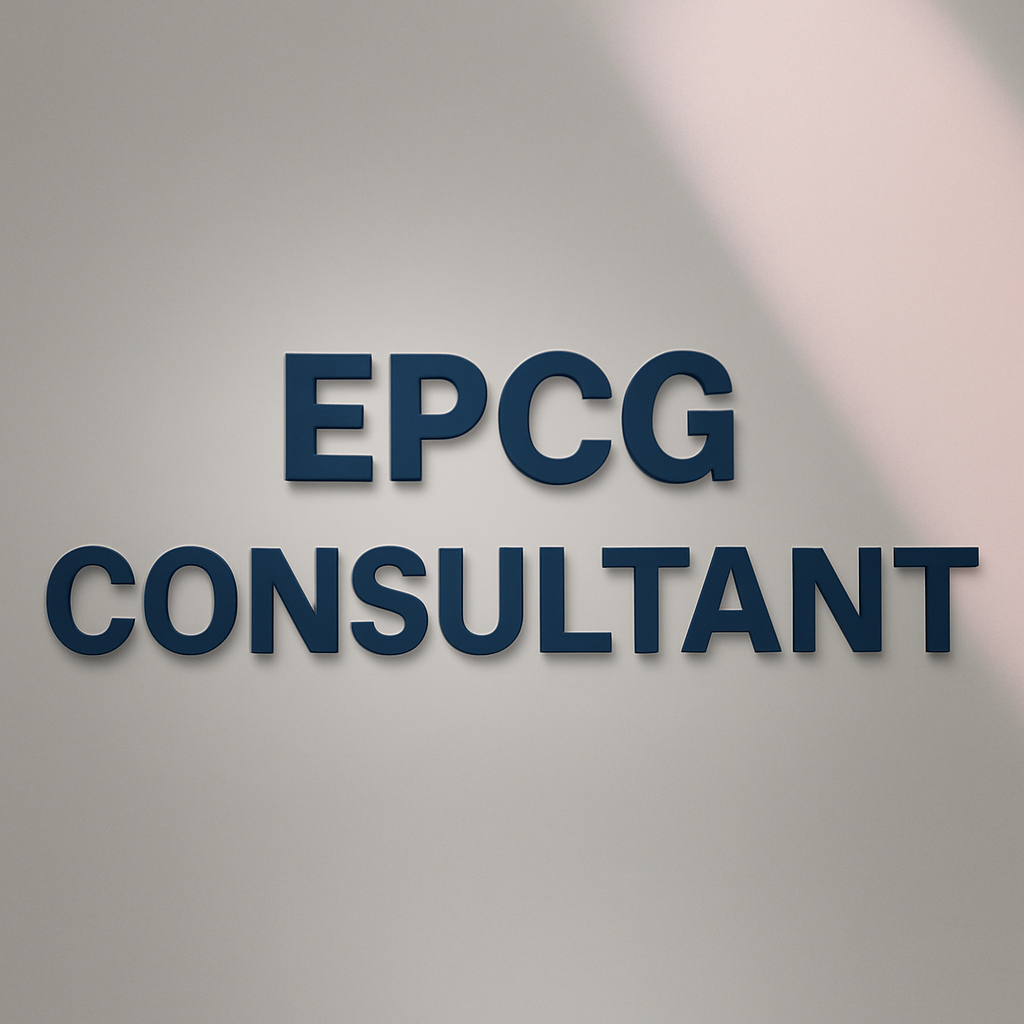
EPCG Consultant – Maximise Export Incentives with Strategic Guidance
If you're looking to expand your manufacturing capacity while staying cost-efficient, the EPCG (Export Promotion Capital Goods) Scheme could be your most valuable tool. This scheme allows importers to bring in capital goods at zero or concessional customs duty, on the condition that they fulfil a specific export obligation. But while the benefit sounds straightforward, compliance and paperwork are where most businesses struggle.
That’s where our role as your trusted EPCG Consultant begins.
Why Work with an EPCG Consultant?
The EPCG Scheme, while incredibly beneficial, involves multiple stages of documentation, timelines, export obligation monitoring, and periodic reporting to DGFT and Customs. If not handled properly, businesses can face penalties, duty demands, or even cancellation of the license.
At SOFTEX Consultancy Services LLP, we bring years of hands-on experience helping businesses plan, apply, and manage their EPC Registration Services with confidence and compliance.
Whether you're a new exporter or a seasoned manufacturer expanding capacity, we make the process simpler, from pre-application advice to post-approval compliance tracking.
EPCG Scheme – An Overview
The EPCG Scheme is governed by the Foreign Trade Policy (FTP) and designed to encourage the import of capital goods for producing high-quality exports. Here's how it works:
- You can import new or second-hand capital goods at 0% or concessional customs duty under EPCG.
- In return, you're required to meet a predefined export obligation (typically 6 times the duty saved) within a specific timeframe (currently 6 years).
- The export obligation can be fulfilled through direct exports, deemed exports, or service exports, depending on your business model.
But staying compliant requires timely submissions, proof of fulfilment, and ongoing coordination with DGFT authorities, which is where a professional EPCG consultant adds value.

Frequently Asked Questions
1. What is the EPCG Scheme?
The Export Promotion Capital Goods (EPCG) Scheme allows businesses to import capital goods at zero or reduced customs duty, provided they fulfil a pre-set export obligation. It’s a great way to reduce upfront costs while boosting export capabilities.
2. Who is eligible for EPCG benefits?
Manufacturers, exporters, service providers, and merchant exporters tied to supporting manufacturers are eligible. However, proper application and compliance are key, which is why working with an experienced EPCG Consultant is advisable.
3. What is the export obligation under the EPCG Scheme?
Typically, businesses must export goods or services worth six times the duty saved, within six years from the issue of the license. The export obligation can be adjusted based on sector and government policy updates.
4. What happens if I fail to meet the export obligation?
Failure to fulfil the obligation may lead to payment of full customs duties, along with interest and penalties. Timely follow-ups and documentation, as guided by your EPCG Consultant, can help avoid such issues.
5. How do EPC Registration Services help my business?
Professional EPC Registration Services ensure your application is accurate, timely, and aligned with current regulations. Consultants also help with documentation, bonding, monitoring obligations, and redeeming licenses post-compliance.
6. Can I use second-hand machinery under EPCG?
Yes, under certain conditions, second-hand capital goods can be imported. However, there are specific rules around valuation and usage. Your EPCG Consultant can guide you through the process to avoid rejection or delays.
7. Can service providers avail benefits under the EPCG scheme?
Yes. Hotels, logistics companies, and other service exporters can avail benefits under the scheme, provided they meet the eligibility and export criteria set by DGFT.
8. What kind of support do you provide post-approval?
We offer complete post-approval support-including export obligation tracking, preparing and filing redemption applications, coordinating with DGFT and Customs, and managing audits or policy clarifications.
9. How long does the EPCG registration process take?
Depending on documentation readiness and department processing, it may take 2–4 weeks. Our EPC Registration Services aim to minimise delays with proactive document preparation and real-time coordination.